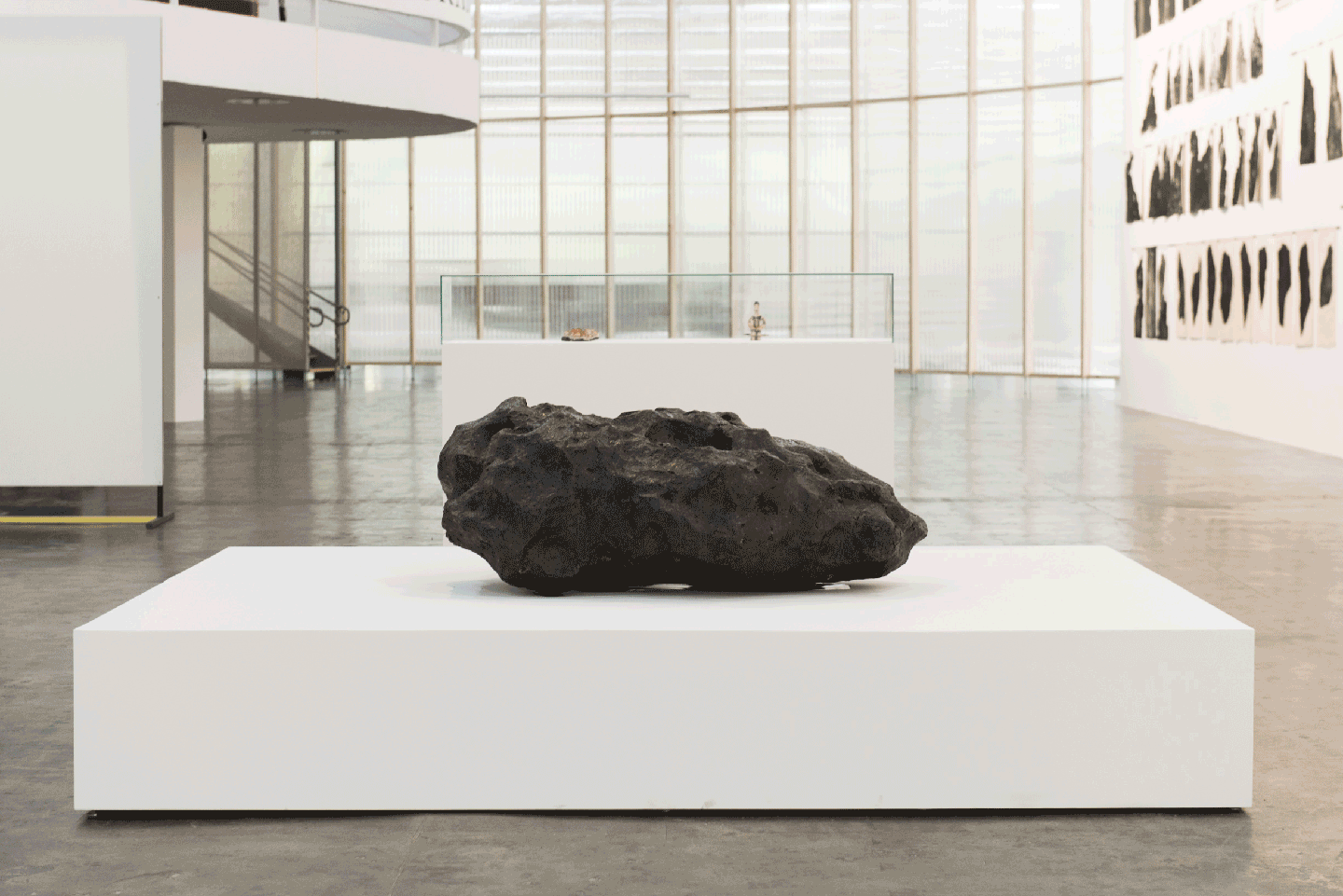Faz escuro mas eu canto (Though it’s dark, still I sing)
September 4–December 5, 2021
Fundação Bienal de São Paulo
Pavilhão Ciccillo Matarazzo Av. Pedro Álvares Cabral, s/n - Ibirapuera, São Paulo, Portão 3
Sao Paulo-Sao Paulo
04094-000
Brazil
T +55 11 5576 7624
comunicacao@bienal.org.br
The full list of the 91 participating artists can be found here.
The starting point for the curatorial project of the 34th Bienal de São Paulo was the desire to unfold the show, to activate each moment of its construction and to sharpen the vitality of an exhibition of this scale. Seeking to dialogue with the very large and very distinct publics that have been visiting the Bienal for decades, this edition of the event was expanded in both space and time. Officially inaugurated on February 8, 2020, with a performance by Neo Muyanga and a solo exhibition by Ximena Garrido-Lecca, the Bienal would continue with events held in partnership with several cultural institutions in town and culminate in the large group exhibition to be held in September of that same year. In the new scenario imposed by the Covid-19 pandemic, various aspects of this choreography were modified, exhibitions and performances had to be canceled and the exhibition Wind was born, last November, to make public some of the crucial aspects behind the Bienal, while making tangible the sense of distance and absence that still pervades our lives.
Searching for a language to delineate the force fields created by the combined presence of artworks from very different places and times, the curatorial team proposed some objects, coupled with their stories, as “statements.” Punctuating the exhibition, they suggest a tone for the artworks around them to be read in, conveying the curatorship’s concerns and reflections. The first one of those statements is a group of three objects from the collection of the Museu Nacional in Rio de Janeiro, destroyed by the fire on the night of September 2, 2018. A stone that changed from amethyst to citrine due to the long exposure to very high temperatures: by indelibly absorbing the heat created by the fire, it became a clue, its color an evidence of what happened. A ritxòkò, a Karajá doll, donated by Kaimote Kamayurá to replace a similar doll lost in the fire, emphasizing other ways of preserving culture that are not restricted to the physical existence of a single object withdrawn from its social function. And finally, the Santa Luzia, the second-largest meteorite found in Brazil, discovered in 1921 in Santa Luzia (currently Luziânia), Goiás. Tempered by its passage through the atmosphere, the Santa Luzia emerged completely unscathed from the National Museum’s ruins. These objects, displayed at the very beginning of the Bienal, introduce one of its overarching concerns: the desire to affirm the value and importance of resisting, of moving forward incorporating transformation as an integral part of living, and reconstruction as a task of critical reinvention.
Conceived as the first of these statements, rather than as a theme, the title of the 34th Bienal de São Paulo, Faz escuro mas eu canto [Though it’s dark, still I sing], is a line from a poem by Amazonian poet Thiago de Mello, published in 1965. Through this poetic phrase, the curatorial team, composed by Jacopo Crivelli Visconti, Paulo Miyada, Carla Zaccagnini, Francesco Stocchi and Ruth Estévez, recognizes the urgency of the problems that challenge life in the current world, while underscoring the need for art as a field of resistance, rupture, and transformation. In the last year, the darkness that surrounds us has been thickening: from the fires in Amazonia that darkened the day for thousands of kilometers around them to the mourning and lockdowns brought on by the pandemic, along with the political, social, environmental, and economic crises that were ongoing and are now deepening. Throughout these year of work, surrounded by collapses of every sort, we continuously asked ourselves: what forms of art and ways of being in the world are currently possible and necessary? In dark times, what are the songs we need to listen to, and to keep singing?



